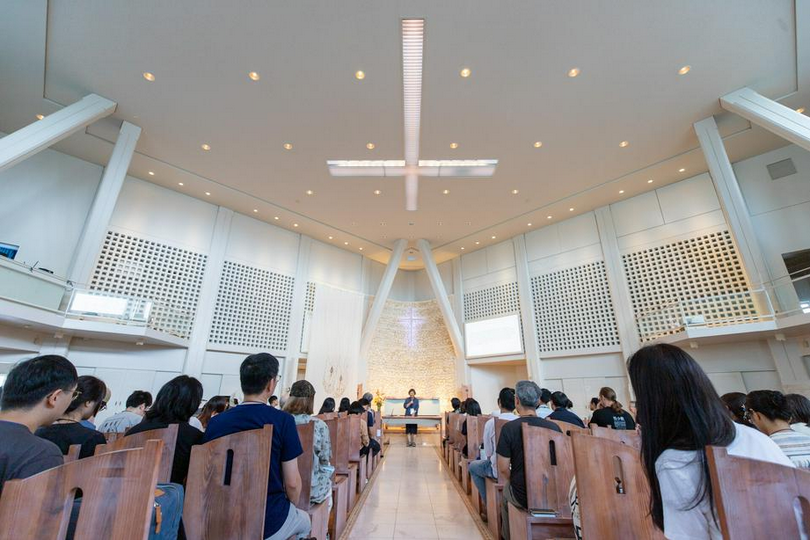Around 75 Christian leaders and peacebuilders from Northeast Asia and beyond gathered in Okinawa, Japan, from July 28 to August 2 for the 12th Christian Forum for Reconciliation in Northeast Asia (NARI), centered on the theme "Reconciliation Through Resilience: Learning from the Okinawa Context and Beyond."
Launched in 2012, the NARI Forum was initiated by Duke Divinity School's Center for Reconciliation, the Mennonite Central Committee, and colleges and institutions in Northeast Asia. The annual forum serves as a platform to pursue the pastoral, theological, and peacebuilding work of healing in a region shaped by historical wounds and divided memory.
To forward the ministry of reconciliation in the Northeast through Christian leadership, community and healing across divides, faithful Christian testimony, and catalysts for collaboration and new initiatives, the forum adopts the phrase "Word Made Flesh" (John 1:14), examining the three critical dimensions that it contains: theological ("the Word"), contextual ("became flesh"), and practical ("and dwelt among us"), according to 2 Corinthians 5:18. The forum embraces five themes through the theological journey: new creation, lament, pilgrimage, hope, and spirituality for the long haul.
This year's forum was hosted primarily at Goya Baptist Church in Okinawa, a region chosen for its rich yet painful history. "The island of Okinawa has a rich, complex, and painful story," said NARI Chairman Jongho Kim during the opening ceremony on July 28. "We are here to listen—to one another's stories, to the story of this land, and to its people who are still hurt. But it's not just a history of pain—but also a story of hope."
Kim, who formerly served as associate regional secretary for the International Fellowship of Evangelical Students (IFES)-East Asia, reflected on how his journey with the forum began. He recalled a surprising visit in 2011 from Chris Rice, co-founder of the Duke Center for Reconciliation, who had the burden for Christians who are disturbed by the ongoing conflict and brokenness in Northeast Asia. "He came to my office to 'disturb' me," Kim said. "So that was the beginning of my personal journey with this. For I never expected to be the person." Since then, he has been involved in the forum for more than a decade.
"So who knows in ten years what will happen to you? God is interrupting your life in this Kairos. I hope and pray that God will come to you personally through this week," he added.
Continuing the previous style, the forum started with worship and devotionals in the morning and ended with evening worship. The activities included plenary and workshop sessions.
Morning plenary themes concerned the teachings on biblical "new creation", "lament", "hope" and "spirituality for the long haul," lectured by Dr. Dong Jin Kim from Hanshin University, Keigo Yamada from the Catholic Volunteer Liaison Council-Okinawa, Dr. Shine Ho from Hong Kong Metropolitan University, and Dr. Jung Choi from Duke Divinity School, respectively.
Afternoon workshop sessions provided space for theological and pastoral reflection on topics of peace, reconciliation with emotions, arts therapy, the role of the church in fostering peace rooted in the gospel, and the practice of Christian forgiveness to pursue authentic peace in Northeast Asia.
A half-day immersion experience brought attendees to the Sakima Art Museum and two gama caves, sites that commemorate the suffering of Okinawan civilians during World War II, including mass suicides carried out under extreme duress. These visits underscored the importance of memory and truth-telling in personal and communal healing as well as reflected on the cost of violence and the hope of resurrection.
Through shared meals, storytelling, study, and reflection, participants were called to embody the ministry of reconciliation in their contexts. As ambassadors of Christ, they were encouraged to carry forward the message of reconciling the broken world to God and each other when back home.















